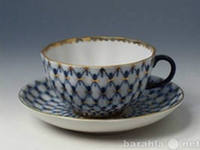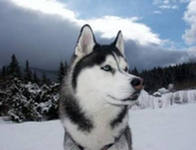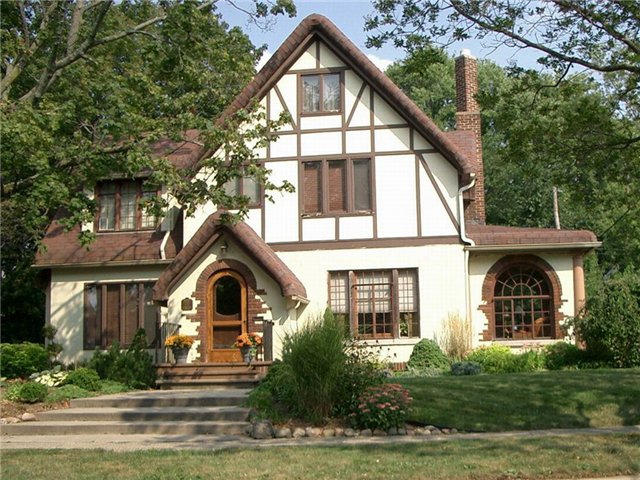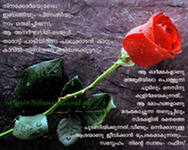- Преподавателю
- Иностранные языки
- Урок английского языка Домашняя работа
Урок английского языка Домашняя работа
| Раздел | Иностранные языки |
| Класс | - |
| Тип | Конспекты |
| Автор | Радченко Н.И. |
| Дата | 01.01.2016 |
| Формат | docx |
| Изображения | Есть |
Тема урока: Домашняя работа.
Подтема: Помогаете ли вы дома?
Тип урока: Закрепление полученных знаний.
Образовательные цели:
Совершенствовать навыки использования в речи
времени Present Simple, а также наречий always,
often, sometimes, never на базе новой лексики по теме
"Doing Chores".
Развивающие цели:
Развивать навыки устной и письменной речи.
Развивать долговременную память и речевой поступок
на уровне предложения.
Воспитательные цели:
Воспитывать уважение к труду и осознание необходи-
мости помощи родителям по дому .
Учить работать в сотрудничестве - в парах, в команде.
Оснащение:
Компьютер, презентация, доска, учебник английского
языка 7 класс О.Карпюк, вопросник, наглядные посо-
бия,карточки.
Технологии: Индивидуальная, парная, групповая работа,
использование ИКТ, здоровьесберегающие
технологии -зарядка, личностно-ориентиро-
ванные технологии- разноуровневые задания
на дом.
1.Начало урока.
Организационный момент. Приветствие, орга-
низация класса к уроку.
Good morning. Sit down.
My name is Надежда Ивановна and I can see your names on the
cards. So, nice to meet you.
How are you…?
How are you…?
I'm fine too. So, we are ready to work and it's OK. I'd like to wish
you good luck.
2. Основная часть урока.
1.Мотивация и обсуждение темы и цели урока.
Do you like crosswords? -Yes.
Look at the crossword. Guessing the words we can find out the topic
of our lesson. Let's combine into three groups. The first group, which
find the topic, will be a winner.
1c
u
p
2h
o
u
s
e
3d
o
g
4r
e
d
5h
e
6r
o
s
e
-
We drink from a …
-
Where do we live?
-
A barking animal.
-
Colour
-
A woman - she, a man - …
-
A flower.
The first group is a winner. They say us a topic. OK, Doing chores or
Housework in Russian means Работа по дому.
T. What should we do today?
1. We should revise the words on the topic "Doing Choes"
2. We should practice in listening, reading, speaking, and writing.
3. We should think if we really help our family about the house.
2.Организация повторения и закрепления словарного запаса по теме.
We shall start the lesson revising the words. Look at the pictures and
say what do the people do.
3.Организация чтения текста.
Children all over the world help their parents. Let's read two letters
and say what these girls have got in common.
Open your books at page 58 find ex. 1
Read the texts.
( читают два ученика упр.1 стр.58 учебника)
T. What do the girls have got in common?
Ps ( They help about the house).
T. Read and choose the correct answer.
Look at ex.2 page59.
(упр.2 стр.59)
5.Организация парной работы.
Lucy and Sheila help their parents.
Do you help your parents?
Make up a dialogue.
P1.What do you do to help about the house?
P2.I sweep the floor.
P1. Do you like it?
P2. Yes, I do.
P1. How often do you sweep the floor?
P2. I always sweep the floor.
(использование 3-4 слайдов, использование индивидуальных карточек)
6.Организация психологической игры.
Do you want to know anything about yourselves?
Fill in the card and count the points.
(просмотр слайда)
7.Организация аудирования текста с проверкой понимания содержания текста.
I see many children are hard-workers.
Listen to the text and say can we call the man a hard-worker.
There once was a man, who lived alone in a little house in a small town. He always cooked his own dinner, cleaned the house by himself and made his own bed.
One night he came home feeling very hungry, so he made a big
dinner. He had been eating much and he was very tired after fini-
shing. He decided to leave dishes till the next night.
It happened many nights, He pilled dirty dishes on his bookshel-
ves, on the floor Poor man! He couldn't come into his house.
Suddenly the rain started! The man got an idea. He drove his big
lorry and pilled all the dishes. The rain had been falling on every-
thing and soon the dishes were clean again. The rain washed them. He put dishes into their right places.
The next night when he came home he cooked his dinner , finished to eat it, then washed the dishes and put them right away. Now he
is happy because he can find his things and it is easy for him to
get into his house.
-
Did the man wash up the dishes one night?
2. Did he pill his dirty dishes on his bookshelves and floor?
3. Was the man a hard-worker or a lazybones?
4. What helped the man to wash up the dishes?
5. Are the dishes clean now?
6. Is the man happy?
8.Организация физкультминутки.
Let's have a little rest. Stand up and do some exercises.
(слайд с физкультминуткой)
9. Организация работы в малой группе.
Now let's work in groups.
One of you will read the question and the others will answer it.
1 гр. Who cleans your room?
2 гр. Who takes the rubbish out in your family?
3 гр. Who cooks breakfast in your family?
10. Организация написания письма.
One girl visited Disneyland last year and do you know why? Because she was a good Parents ' Helping Hand. Do you want to visit Disneyland too? Let's write the letter and if you are good helping hands I'll give you a pass to Disneyland.
Look at the model.
( просмотр слайда)
-
Заключительная часть урока.
Children! If the lesson was easy- raise red cards.
If the lesson was boring - raise yellow cards.
Make a conclusion.
Is it important to help your parents?
( Yes, it is.)
The most active children get 11-10, the less active, who made some
mistakes - 9-8
Your hometask:
(look at the blackboard) Write a letter to the English Bridge about
householding duties of your family members.
Thank you. Good bye.
Карточки для диалогов
-What do you do to help about the house?
- ________________________________
-Do you like it?
- ________________________________
-How often do you__________________?
-I (always, sometimes)_______________.
Карточки для диалогов
-What do you do to help about the house?
- ________________________________
-Do you like it?
- ________________________________
-How often do you__________________?
-I (always, sometimes)_______________.
Teкст для аудирования
There once was a man, who lived alone in a little house in a small town. He always cooked his own dinner, cleaned the house by himself and made his own bed.
One night he came home feeling very hungry, so he made a big
dinner. He had been eating much and he was very tired after fini-
shing. He decided to leave dishes till the next night.
It happened many nights, He pilled dirty dishes on his bookshelf-
ves, on the floor. Dirty dishes, pots, ashtrays, flowerpots, kettles and pans were everywhere. Poor man. He couldn't come into his house.
Suddenly the rain started! The man got an idea. He drove his big
Lorry and pilled all the dishes. The rain had been falling on every-
Thing and soon the dishes were clean again. The rain washed them. He put dishes into their right places.
The next night when he came home he cooked his dinner , finished to eat it, then washed the dishes and put them right away. Now he
is happy because he can find his things and it is easy for him to
get into his house.
Карточки для психологической игры
How often do you
A/S/N
1
do the washing up?
2
do the vacuum cleaning
3
do the dusting?
4
do the shopping?
5
do the cooking?
6
water the plants?
7
feed your pet?
8
make your bed?
9
take out the rubbish?
A - always -2 points
S - sometimes -1 point
N - never - 0 point
Вопросы для работы в малых группах
Who cleans your room?
Who takes the rubbish out in your family?
Who cooks breakfast in your family?
.




Кроссворд
1
2
3
4
5
6
-
We drink from a …
-
Where do we live?
-
A barking animal.
-
Colour
-
A woman - she, a man - …
-
A flower.
Кроссворд
1
2
3
4
5
6
-
We drink from a …
-
Where do we live?
-
A barking animal.
-
Colour
-
A woman - she, a man - …
-
A flower.


